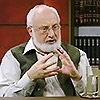Names As Symbols Of Connecting Properties
 The Torah “Numbers” 10:29 – 10:32: Then Moses said to Hobab the son of Reuel the Midianite, Moses’s father-in-law, We are traveling to the place about which the Lord said, I will give it to you. Come with us and we will be good to you, for the Lord has spoken of good fortune for Israel. He said to him, I won’t go, for I will go to my land and my birthplace. He said, Please don’t leave us, for because you are familiar with our encampments in the desert and you will be our guide. And if you go with us, then we will bestow on you the good which God grants us.
The Torah “Numbers” 10:29 – 10:32: Then Moses said to Hobab the son of Reuel the Midianite, Moses’s father-in-law, We are traveling to the place about which the Lord said, I will give it to you. Come with us and we will be good to you, for the Lord has spoken of good fortune for Israel. He said to him, I won’t go, for I will go to my land and my birthplace. He said, Please don’t leave us, for because you are familiar with our encampments in the desert and you will be our guide. And if you go with us, then we will bestow on you the good which God grants us.
Comment: Even before the exodus from Egypt, Moshe’s father-in-law Jethro came with his selfish wisdom to his son-in-law and told him how to best organize the people. The same is said about Hobab: “You know encampments in the wilderness.”
Answer: Each time, we bring up new properties out of our selfish desires in order to correct them. They are necessary for our advancement.
Just as Jethro, Hobab the Midianite represents our egoism, which we constantly have to address in order to correct; otherwise we won’t be able to move ahead.
However, it is said that he “returns to his homeland,” meaning that we take from our selfishness only what is necessary, but give it a different name since it already is a different property, the one that is coupled with altruism.
The same property flows from Jethro to Hobab. In fact, the Torah lists not too many basic names of various properties. When moving from level to level the properties mixes together, thus forming transitional “structures” suitable for correction. Therefore, there appear a greater number of names.
The same is observed in the wisdom of Kabbalah. It describes only five Sefirot, five parts and five lights. However, when we disclose them, they produce multiple additional names and definitions.
The “Great Commentary” says: “Jethro was among the children of Israel, Moses’s father-in-law, who after his conversion to Judaism got a new name—Hobab.”
It means that a part of the property named “Jethro” went through correction, and the other part returned to Klipa (impurity, selfishness).
Further, the “Great Commentary” states: “After Jethro heard that the people returned to the land of Israel, he told Moses that he would go back to his homeland in Midian.” Moshe tried to convince him to stay: “The Creator commanded us to love all Gers, but you deserve special love and kindness.”
Any selfish desire that wants to be corrected is called a “Ger.”
Ger also refers to anyone, irrespective of one’s origin, who starts to use the wisdom of Kabbalah to reach the level of “love thy neighbor as thyself.”
[163017]
From KabTV’s “Secrets of the Eternal Book” 2/11/15
Related Material:
Jethro’s Advice
The “School” Of Jethro
A Message To The Cloud Of Glory







Discussion | Share Feedback | Ask a question